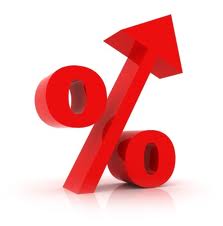The Media Continues to Get it Wrong on Reverse Mortgages

All you have to do is Google the term “reverse mortgage” and you’ll see that some in the media have written articles saying that they should be avoided. And so, as I sat down to write this article, I did exactly that… I typed “reverse mortgage” into Google and started clicking on links, reading what came up from my search.
The first one I clicked on was published by U.S. NEWS/Money on December 11, 2012… under the ominous headline: 5 Reasons to Avoid a Reverse Mortgage. However, since the author of this article is only identified as “FMF,” or a “Contributor,” there’s no way to find out who is providing the information or viewpoint.
Regardless, it appears under the U.S. News banner so I’m sure many would assume it to be a legitimate article, which is why I’m using it as an example of what shouldn’t be happening, but nonetheless is.
The author starts out with Reason #1… The fees are often high.
Today’s reverse mortgages are more accurately called Home Equity Conversion Mortgages or HECMs, for short. They are regulated by HUD and insured by the FHA, and unlike other mortgage products, HUD places strict limits on the origination fees that can be charged.
For example, if your home appraises for $600,000 or more, the most you can be charged to originate the loan is $6,000. If, on the other hand, your home appraises for $300,000… then the most you’ll pay is $3,000. (Below that, you can still be charged $2,500, regardless of the home’s appraised value.)
That’s roughly one percent, which is no more than I’ve been charged for any mortgage I’ve ever gotten.
There can also be charges for the same sorts of things we’re all familiar with from traditional mortgages, such as escrow, title, documents, et al… but these charges are the same as they’ve always been… about $2,200 to $2,400. And lastly, there can be a premium to cover the mortgage insurance involved, which can be as high as 2.5 percent and as low as .5 percent of the loan amount.
However, those are the worst case numbers associated with getting a HECM, so the reality is that you might pay less… but won’t pay more. And you almost never have to pay any of those costs out of your pocket, usually they can all be included in your loan.

Does that make HECMs expensive? I wouldn’t think so, but you’ll see why I say that as we move into Reason #2: High interest rate.
From everything I’ve seen, the interest rates on a HECM are comparable with other fully amortized mortgages. You can choose an adjustable rate that offers a cap on how much it can be increased over time, or a fixed rate loan that can never go up… just as is the case with a traditional mortgage.
Now, the author of the U.S. News article compares the HECM with a HELOC, or Home Equity Line of Credit, and that is simply not a fair or accurate comparison when talking about people in or near retirement age.
Plainly stated, HELOCs are terrible loans for people in retirement for several reasons. First of all, HELOCs require borrowers to make interest only payments each month without fail, and after 10 years of that the payments shoot up as they go from being interest only to fully amortized so that the loan is paid in full in 20 years.
The problem is that as people age, incomes tend to drop while expenses can increase. So, someone that gets a HELOC at age 65, has to expect his or her payments to increase when they reach age 75, and that will spell trouble for many homeowners.
HELOCs are also hard to qualify for today. You have to qualify based on your monthly income, how much equity you have doesn’t matter, you need monthly income to be approved for such a loan. And should your income drop for whatever reason, missing a payment on your HELOC can lead to you being forced to sell the home or losing it to foreclosure.
In contrast to that scenario, a HECM doesn’t require the borrower to make monthly payments, so you can decide how you want to repay the loan. Some choose to make interest only payments, others make payments once a year or every few years… and some make no payments in which case the loan is repaid when the home is sold or upon their death.
It’s true that you still have to pay your property taxes and insurance, but you have to pay those costs even if you have no mortgage on the home.

Reason #3: Your heirs might not get the house.
Well, that’s true regardless of whether you take out a HECM or not. For example, if you’re forced to sell the home to access some of your equity, or if you lose it to foreclosure, your heirs won’t get the home either, right?
With a HECM, when you die, you leave the home to your heirs, just as you would with any mortgage. Your heirs can either sell the home and keep the equity… or they can refinance the home to pay off the HECM and keep it… or if there’s no equity in the home, they can simply walk away because a HECM is a non-recourse loan, which means that you can never owe more than it’s worth.
(That’s not true about other mortgages, by the way. If you had a HELOC with a balance of $200,000 when you died, then your estate would owe that money regardless of how much the home was worth at the time.)
The point is that if you run out of money, you can be forced to sell your home in order to access your equity, but if you used a HECM to access that equity, you could remain living in your home for the rest of both yours and your spouses lives.
As to whether your heirs will inherit your home, and how much equity they’ll inherit when they do inherit your home, depends on a whole lot more than whether you use a HECM or not.

Reason #4: You have to repay the loan when you move out.
Well, sort of… a HECM is only available on your primary residence, so if you move into another home full time, you do have to repay the loan. In most cases, however, that just means selling the home in order to move into another. The HECM balance would then be paid off from the proceeds of that sale and you’d keep the equity.
As the author of the U.S. News article correctly points out, if you don’t live in your home for a year, you’re considered to have moved out, even if you’re living in a nursing home that year.
As a practical matter, however, chances are that if both you and your spouse are living in a nursing home or an assisted living facility for over a year, then it’s probably time to sell the home anyway.
Reason #5: You’re still responsible for home costs.
Yeah, so what? Under which possible scenario would any homeowner not be responsible for his or her “home costs?” Even if you own your home free and clear, you still have to pay the property taxes, insurance and normal maintenance, right? So, what does that have to do with whether to use a HECM or not? The answer is… not a thing.

The TRUTH about today’s HECMs…
The truth about today’s HECMs, or reverse mortgages, is that just like any mortgage or financial product, they aren’t good or bad… it depends on each homeowner’s individual circumstances and purpose for the loan.
For example, if you take $100,000 from a HECM in order to gamble in Las Vegas, I’d say that’s probably not a great idea, but depending on your situation, even that might not be true.
Last year, for example, I received a call from a woman who wanted to borrow expressly for the purpose of going on a vacation with her children and grandchildren. She had been researching her family tree and wanted to visit Ireland before she died.
She owned her home free and clear and it was worth about $700,000. So, was that a good reason to borrow against her equity in a way that wouldn’t require her to repay the loan in her lifetime? Or would you consider it a bad use of her equity? Personally, I don’t think it’s anyone’s business what she wanted to do with her equity at 105 years of age, but that’s just me.

Now let’s look at how the value of a home impacts the HECM…
Let’s say your home is worth $700,000 and you take $300,000 out using a HECM at age 80. Your loan balance will go up by whatever the interest rate is… let’s say it’s five percent to make it easy to calculate things.
So, after year one, your balance goes up by five percent to $315,000, but what happened to your home’s value that year? If it went up by just three percent that year, then its value increased by $21,000… three percent of $700,000. In that example, the accrued interest is less than the home’s appreciation, so you’re still gaining equity, just not as much as you would have without the loan.
Now, let’s say that your home’s value is only $500,000. If that home goes up in value by the same three percent that year, then it’s appreciating by $15,000, which is the same amount of interest accruing in year one.
The other factor to consider is your age. If you’re 62 when you take out cash via a HECM, then it’s possible that you’ll live 30 years or more, and over that period of time, depending on the home’s value and appreciation, you could end up with little or no equity upon your death. However, if you take out the same loan at 80, unless you live until you’re 110, it’s highly unlikely that you’ll use up the equity in your home.
The point I’m trying to illustrate is that your home’s value today, and how much it appreciates over time, along with your age and purpose for the money, all combine to dictate whether a HECM is a good or bad idea and how that HECM will impact your financial situation over the years.

A HECM is a tool, and like any tool, whether it’s good or bad depends on how it’s used.
A hammer is a good tool for nailing nails or maybe breaking glass, for example, but it’s a terrible tool for screwing in screws or tightening a bolt.
Financial products, like the HECM, are no different. A CD, or Certificate of Deposit is a good tool at times, but not if you are likely to need the money sooner that it matures, and not if you could invest that money safely for greater return. Does that make CDs good or bad… no.
A HELOC is another tool that can be good or can be bad, depending on how and why it’s used by the borrower. If you’re 35 and your income is likely to rise over the next ten years, and you want money to improve your property, then a HELOC can make perfect sense. But, if your income is likely to be lower ten years from now and you’re taking the money to cover living expenses, then it’s probably not something you should do.
Even credit cards can be good or bad. I mean, if you carry high balances at high interest rates, that’s probably not good, but I’ve known many entrepreneurs that have used their credit cards to finance start-up companies and made millions as a result.
Then there are the different types of HECMs that are available today. In addition to the standard HECM that allows a homeowner to access a portion of the equity in his or her home without having to repay the loan on any certain schedule, there’s also the HECM for Purchase and HECM Line of Credit.
The HECM for Purchase is unique in that it allows someone to purchase a home without having monthly payments and the HECM Line of Credit is unique in that it is guaranteed to increase each year regardless of the home’s value. (Click either of those links for more information on either.)
So, the truth of the matter is that no one should be writing about a HECM or reverse mortgage being good or bad, because it depends on so many variables… the purpose for the money, the age of the borrowers, the home’s value, and more… all of these and more will dictate whether an individual homeowner should or shouldn’t consider using a HECM as they approach or are in their retirement years.

Last month, I wrote about a couple that saved $200,000 by using the funds available through a HECM, as opposed to withdrawing the funds from their 401(k) accounts. The couple was in their mid-60s, and were planning to work until age 70, so it made sense to leave as much as possible in their 401(k)s in order to earn as much as possible during their last years on the job.
Since the proceeds from the HECM are tax free, the couple could access the cash they needed to purchase their retirement home without having to pay roughly 40 percent in taxes as would be required when withdrawing from their retirement accounts. And with a home worth over $800,000, it would be highly likely that their home’s appreciation will outpace the interest that would accrue on their HECM over the next six years until they retire.
All told, it would be difficult if not impossible for anyone to look at that couple’s use of a HECM as being anything but a great idea, and their CPA and financial advisor both agreed.
Countless others celebrating their 62nd birthdays haven’t been able to save nearly enough to maintain their lifestyles in retirement and because they’ve refinanced over the years, they still have a mortgage payments to make each month. It’s a combination that can lead to real trouble as they get older.
By using the HECM when they turn 62, assuming they continue working until age 70, they can pay themselves their monthly mortgage payment instead of paying that amount to their bank. If they were making monthly payments of $2,000, that would mean being able to save an additional $24,000 a year, so over ten years, a homeowner could expect to sock away at least $300,000, and maybe more by using the HECM.
Yes, it might also mean that they are increasing the amount they owe on their mortgage, but depending on their home’s value and appreciation, it may be a better alternative that heading into retirement with no savings.

The proof is in what homeowners with HECMs have to say…
Homeowners, in the vast majority of cases, are very pleased with what the HECM has done for them… and isn’t that the bottom line? A study conducted by AARP included a survey of homeowners with HECMs and showed the following results…
- 94 percent reported that the HECM has “given them peace of mind.”
- 89 percent said the HECM has “helped them have a more comfortable lifestyle.”
- 87 percent said that the HECM “improved their quality of life.”
- 79 percent reported that the HECM “helped them remain at home.”
Those numbers should present an open and shut case to those that write negative articles about today’s reverse mortgages. Often times, these reporters are younger people who can’t fully appreciate what life and retirement are all about. They simply shouldn’t be writing about something that they can’t imagine using themselves.
In my opinion, writing something negative about a HECM reverse mortgage, without understanding the facts, or considering the numerous ways such a mortgage can be used, is flat out irresponsible.
It’s no different than writing an article that says a HELOC is a bad loan, without considering how that mortgage product can be used, but it’s worse because older homeowners need accurate information upon which to make decisions that will impact the remainder of their lives.
Whether a HECM is a good idea for a homeowner or not depends on that homeowner’s specific and individual situation and circumstances… their goals and concerns… the available alternatives and lifestyle choices.
One thing is certain… when it’s done right and for the right reasons, a HECM can accomplish things that couldn’t be accomplished any other way. And that’s not just good news… it’s great.
~~~
Have questions about HECMs/reverse mortgages? Want rock solid facts?
Email me at: mandelman@mac.com
Or email: Stacey Andelman stacey.andelman@shorecapital.net
Mortgage Loan Originator
NMLS ID #1394312
(714) 315-6060 cell
Shore Capital Corporation
License #01475314
2030 Main St, Suite 1300 #78
Irvine, CA 92614
(714) 625-8938 office
Mandelman out.

